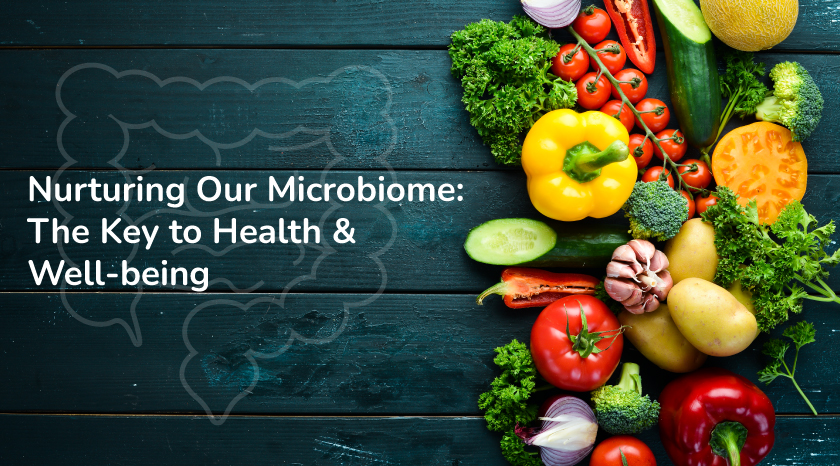In the complex tapestry of the human body, there exists a vibrant and diverse ecosystem known as the microbiome. Comprising trillions of microorganisms, including bacteria, viruses, fungi, and other microscopic life forms, our microbiome plays a crucial role in maintaining our overall health and well-being. In this blog, we’ll explore what the microbiome is, its significance, and why it’s essential for us to nurture it.
Understanding the Microbiome:
The human microbiome is a vast community of microorganisms residing in and on our bodies, with the gut being a particularly rich and diverse habitat. This community is an intricate web of interactions between various species, influencing our physiology, metabolism, and even our mental health. The microbiome is a dynamic entity that evolves throughout our lives, influenced by factors such as diet, environment, genetics, and medical interventions.
Roles of the Microbiome:
- Digestive Health: One of the primary functions of the microbiome is aiding in digestion. Certain bacteria in the gut break down complex carbohydrates, produce essential vitamins, and help absorb nutrients. A balanced microbiome contributes to a healthy digestive system, preventing issues such as irritable bowel syndrome (IBS) and inflammatory bowel diseases (IBD).
- Immune System Support: The microbiome plays a pivotal role in training and modulating our immune system. A well-balanced microbiome helps the immune system distinguish between harmful pathogens and beneficial microorganisms. This function is crucial for preventing autoimmune diseases and maintaining overall immune resilience.
- Mental Health and Brain Function: Emerging research suggests a strong connection between the gut and the brain, often referred to as the gut-brain axis. The microbiome appears to influence mental health and cognitive function, with imbalances linked to conditions like anxiety, depression, and neurodegenerative diseases.
- Metabolism and Weight Regulation: The composition of the microbiome is associated with metabolic processes, including energy extraction from food. An imbalance in the microbiome has been linked to conditions such as obesity and metabolic syndrome.
Why Nurture Our Microbiome?
- Dietary Impact: The food we eat significantly shapes the composition of our microbiome. A diet rich in fiber, prebiotics, and fermented foods promotes the growth of beneficial bacteria, fostering a diverse and resilient microbial community.
- Probiotics and Supplements: Introducing probiotics, either through supplements or fermented foods like yogurt and kimchi, can help maintain a healthy balance of microorganisms in the gut. These beneficial bacteria can enhance digestion and support immune function.
- Antibiotic Awareness: While antibiotics are essential for treating bacterial infections, their indiscriminate use can disrupt the balance of the microbiome. It’s crucial to use antibiotics judiciously and, when necessary, consider probiotic supplementation to restore the microbial equilibrium.
- Stress Management: Chronic stress can adversely affect the microbiome. Practicing stress-reduction techniques, such as mindfulness and meditation, may positively impact the gut-brain axis and promote a healthier microbial community.
Our microbiome is a delicate and intricate ecosystem that influences various aspects of our health. Nurturing it through mindful dietary choices, probiotic supplementation, and stress management is key to promoting a resilient and balanced microbial community. As we delve deeper into the fascinating world of the microbiome, we unlock the potential to enhance our overall well-being and pave the way for a healthier future.





